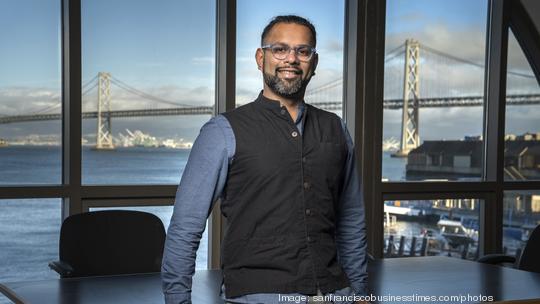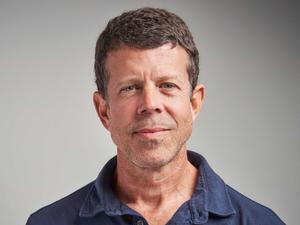
Editor note: In our 2022 Startups to Watch feature, the Silicon Valley Business Journal and San Francisco Business Times present startups and founders doing unique things in the San Francisco Bay Area. Journey Colab is one of 20 that we have profiled — to read more about our mission and the other startups we're featuring, click here.
Jeeshan Chowdhury struggled with his mental health for years before trying psychotherapy aided by psychedelics. Then, in 2019, Sam Altman encouraged him start a psychedelic biotech.
Hallucinogenic substances have a long history in many indigenous and Eastern cultures, but have been largely shunned in mainstream American culture despite the Bay Area's counter-culture reputation.
Many substances, including peyote-derived mescaline, are also still federally restricted as Schedule I drugs — meaning they have no accepted medical use. And medical and recreational cannabis have only started becoming legal at the state-level over the past 25 years.
But Johns Hopkins University recently received a $4 million federal grant to study psychedelics and it could be a sign of more research to come.
"San Francisco holds a rich history around psychedelics and research. It feels like a good home base for the convergence of traditional and clinical psychedelic practice," Chowdhury said. And 10% of its founding equity has been placed into an irrevocable trust that will benefit indigenous communities.
Journey Colab
- Founded: 2020
- Founders: CEO Jeeshan Chowdhury
- What it does: Develops drug therapies derived from psychedelics
- HQ: San Francisco
- Employees: 4
- Total funding: $16 million
- Investors: Andrew Houston, Delphi VC, Lionheart Ventures, MBX Capital, Uprising, Apollo Projects
What’s the pitch for your business in seven words? Modern psychedelic medicine rooted in traditional wisdom.
Did you have to get any special licenses or certifications to commercially work with mescaline? It's still a Schedule I substance federally. Yes, mescaline is a Schedule I substance, so we work closely with regulators including the FDA and DEA for all of the appropriate licenses necessary to ensure we can conduct rigorous scientific research around the potential of these psychedelic therapies.
Journey Colab is focusing its first product on treating alcoholism, correct? What other addictions or mental health disorders do you plan on developing treatments for? There’s a large, unmet clinical need for effective treatments for addiction, so we are focused on developing safe, effective treatments for this indication. Our steward-ownership model continues to bring in interest for other mental health conditions that also require an integrated approach, and while we've focused on our lead program on addiction, we’re excited to see how our model can expand to therapies for other mental health conditions.
Can you tell me anything else about the upcoming clinical trial that's set to start later this year? We're not able to disclose those details yet, but looking forward to announcing more in the coming months.
What was the “aha” moment behind your startup? I saw an opportunity and a need for developing synthetically derived psychedelic products for conditions with significant unmet needs such as addictions. Journey Colab would have this mission as a top priority, wisdom holders as stakeholders and patient outcomes as paramount.
The ‘aha’ moment was really about that realization: As much as we like to exalt and glorify the mysticism of psychedelics, they could just as easily get wrapped up in the wrong frameworks as narcotics have. Instead, we would focus on generating robust clinical data to support the therapeutic use of psychedelics for mental health disorders.
What was the biggest challenge you faced in building your startup? It’s easy to talk about reciprocity (meaning, giving back to the communities and wisdom traditions that have been practicing these medicines for centuries). It’s not so easy to practice it — especially in the context of a for-profit business.
Fundraising took longer than we thought it would because many of the investors didn’t understand our structure, which included the Journey Reciprocity Trust and stakeholder model from the beginning. Of course, we think this challenge ultimately worked in our favor because the investment partners who did come on board are the ones who really get it.
How did you build out your team and what lessons have you learned? Inclusivity was incredibly important from Day One. We’ve found that with our stakeholder model, remote staff and other structural decisions, we’ve had to invest a little more in communication across teams. But it pays off — the result is better, more informed decisions that serve more people. Diverse minds will lead to a product for diverse populations.
Are you already thinking of an exit strategy? What would it be? My hope is that Journey Colab will go public at some point. We're very excited about the tremendous potential value that we could create here and to share that value with our stakeholders through the Journey Reciprocity Trust.







